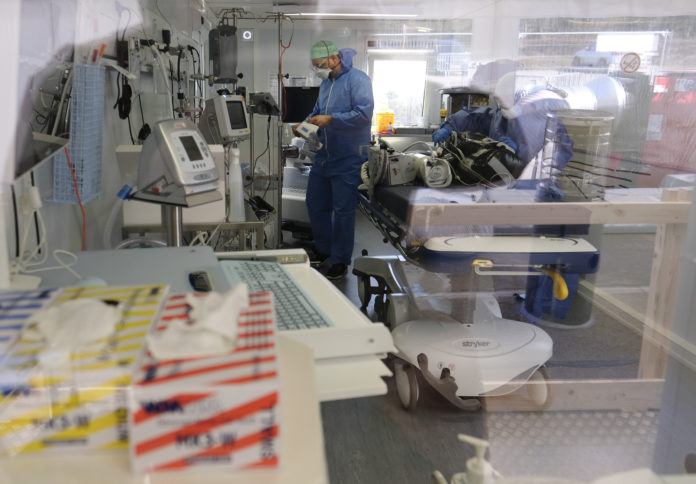660 people have tested positive for the new coronavirus (Covid-19) in Belgium in the last 24 hours, confirmed the Federal Public Health Service during a press conference on Thursday.
This brings the total number of cases in Belgium, since the beginning of the pandemic, to 48,519. The total reflects all people in Belgium who have been infected, and includes confirmed active cases as well as patients who have since recovered, or died from the consequences of the virus.
408 of the newly-infected people live in Flanders, 176 live in Wallonia, and 72 live in Brussels. The FPS does not yet have further information on the place of residence of 4 other people.
“529 of those positive results come from the classical testing network. 131 come from tests taken in the residential care centres, which are still ongoing,” said Professor Steven Van Gucht of the coronavirus crisis centre. In total, the FPS reports that 233,688 people have been tested so far, of which 6,964 in the last 24 hours.
178 new patients were admitted to hospital in the last 24 hours, and 293 people have been discharged, bringing the total number of people in hospital because of the coronavirus at the moment to 3,609.
“Of the patients in hospital, 769 are in the intensive care unit, which is a strong decrease of 28 patients,” said Van Gucht, adding that of those patients, 517 are currently on a respirator, a decrease of 17.
111 new deaths have been reported. "This is a clear decrease compared to the past days and weeks, and last time the number was so low was about a month ago," said Van Gucht. 51 of the deaths occurred in hospitals, and were confirmed cases. 60 of the deaths were reported by the residential care centres, of which 75% were confirmed cases.
Of the newly-reported deaths, 60 occurred in Flanders, 42 in Wallonia, and 9 in Brussels. The total number of deaths in Belgium since the beginning of the pandemic is currently 7,594. “Of that number, 46% occurred in hospitals and 53% in residential care centres,” said Van Gucht.
Related News
- Exit plan: Belgian intensive care doctors afraid of 4 May
- Why Belgium fails to turn the page in fighting the coronavirus
- Confirmed: first phase of Belgium's exit plan starts on Monday
"The occupancy rate of the beds in the intensive care unit is a very important parameter that is used to determine the phases of the exit strategy. However, a problem is that the number of patients in the ICU is a relatively late indicator. It takes about two weeks before people end up there," Van Gucht said.
"We will also start monitoring two other, and earlier, alarm signals. The first is the number of consultations with general practitioners of people for flu-like complaints. The second is the absenteeism at work," Van Gucht said. "We have a system monitoring this for government employees, and it shows that the absenteeism started increasing as early as 2 March, which was the early start of the outbreak. In comparison, we only saw an increase in the number of deaths over two weeks later," he added.
"On Monday, we will take a first step in the phasing out process together. People have questions about how the return to the new normal will take place, and the government will continue to inform people in the coming weeks. However, this will no longer happen every day," said Yves Stevens, a spokesperson for the National Crisis Centre.
"These briefings will take place, from now on, on Monday, Wednesday and Friday, each time at 11:00 AM. Tomorrow, it is a holiday, so we will be back on Monday," Stevens said. "However, the daily report will still be published on our official websites," he added.
Update: The number of patients confirmed with the new coronavirus (Covid-19) in Belgium is 49,032, as of Friday 1 May. Read more about it here.
Maïthé Chini
The Brussels Times

